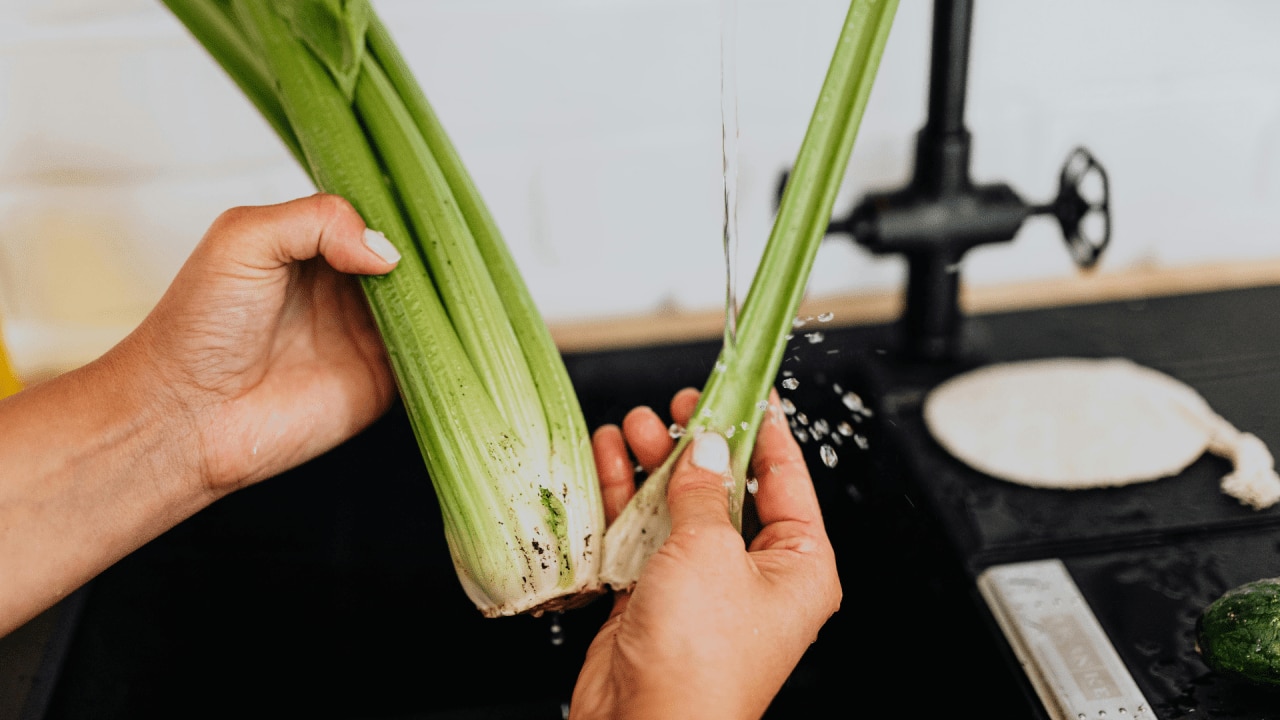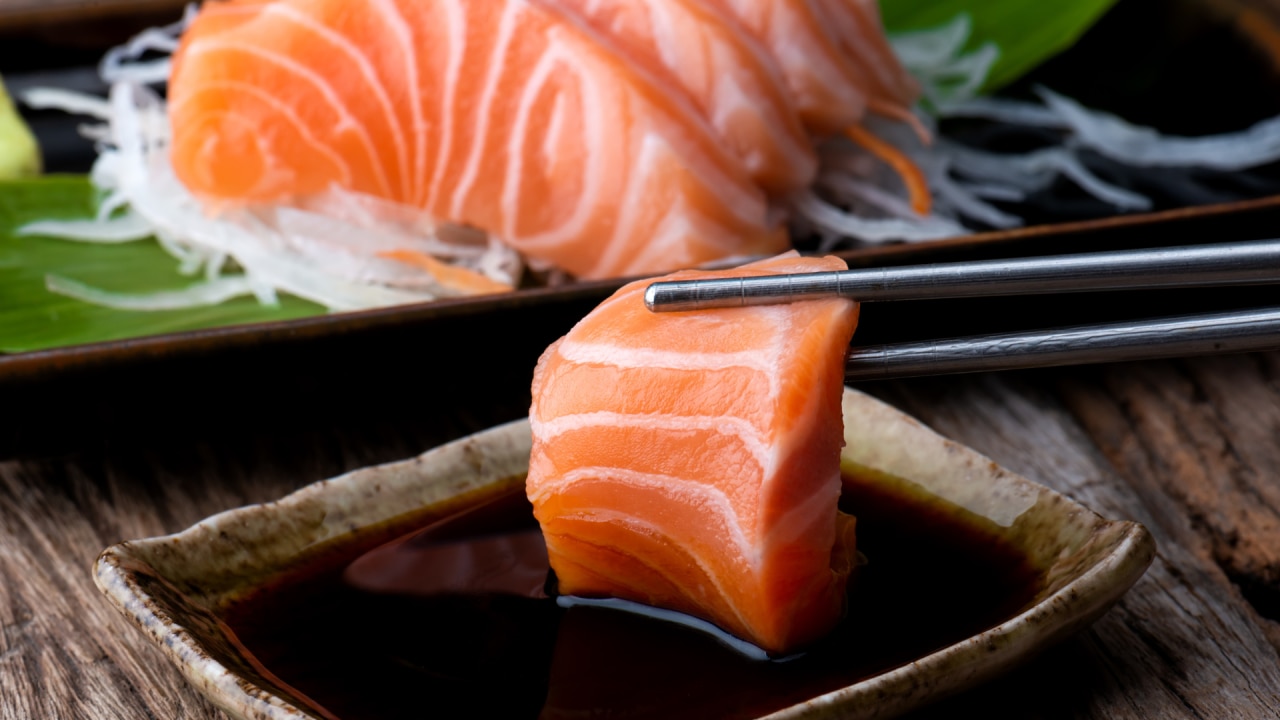Jemma O’Hanlon – Body + Soul
Dietician & Nutritionist
Can eating only raw food really heal… anything? We asked the experts.
The raw food diet has over 75 million views on TikTok, but is this diet trend as healthy as it seems?
Right now, TikTok is abuzz with talk of a pretty old-school diet that sees devotees breaking up with their ovens in favour of raw-only eating’. With influencers espousing benefits like clear skin, hormone balance, lasting weight loss, better sleep, shinier hair – oh and muscle aches or joint pains? Gone.
Then there are those promising that a raw food diet, or even just a short detox (eating raw for a specified period – generally 30 days) can cure autoimmune diseases, and even help treat cancer – yes, that part set off our health-grift alarm.
So, what’s all the fuss about? Has the answer to (quite literally) all of that ails us been under our noses and growing in our gardens this whole time? Should we all start using our ovens as storage and toss our microwaves in the sea? Or are we getting swept away by yet another diet trend, and if so, what’s the harm?
There’s nothing new under the sun, right? well, that’s certainly true when it comes to this trend. Eating raw has ancient origins but a prominent modern-day proponent was Maximilian Bircher-Benner (if you’re a big Bircher muesli fan you have him to thank).
Bircher-Benner was a Swiss physician in the late 1800s whose clinic welcomed the likes of tsars, presidents, and prime ministers the world over, offering specialised, dietary-based treatments.
More recently, the diet was back in vogue in the early 2000s with restaurants dedicated to serving an entirely raw menu popping up across the globe. You’ll know what I mean if you remember this iconic episode of Sex and The City where Samantha forces down an impressive raw degustation to impress a hot waiter.
According to Dietitian & Nutritionist Jemma O’Hanlon, in its modern-day iteration, “The raw food diet encourages people to eat mostly or all raw, uncooked food, as the name suggests. It’s traditionally a plant-rich diet based on unprocessed raw foods. Some people choose to be vegan whilst others choose to include raw animal products like dairy, eggs and fish.”
The belief is that the nutrients in raw food are more easily absorbed and that cooking can kill off enzymes that are important for digestion.
What does the science say?
O’Hanlon says, “Raw food diets are not a miracle cure and the sensational claims often touted are simply untrue. There’s good science supporting the benefits of a plant-rich dietary pattern, but there’s no need to go raw.”
Okay, but sometimes specific and restrictive diets can be helpful to a select group of people with certain diseases. We’re talking things like celiac disease, diabetes, or childhood epilepsy, could the raw food diet be one?
Again, according to O’Hanlon, the news for raw food devotees is not good. “There’s no evidence for the use of raw food diets in managing a particular health condition. If anything, studies have found associations with low BMIs, high rates of underweight amenorrhea (when your period stops due to being underweight) and lower bone mineral density.”
Oh, and remember those poor dead enzymes we talked about earlier? Well, according to the Journal of the Academy of Nutrition and Dietetics, The human stomach is already outfitted with the enzymes we need to digest and absorb nutrients from our food, and our powerful stomach acids deactivate the enzymes found in food anyway.
Are there any benefits?
“According to the most recent National Healthy Survey, 96 per cent of adults and children are not meeting their fruit and vegetable requirements,” says O’Hanlon.
“So the one benefit of a raw food diet is we’re more likely to get our two and five a day (that’s two serves of fruit and five servings of veggies). Eating more plants is good for our health and the planet,” she says. But she’s still careful to couch that advice, confirming, “We don’t need to go to the extreme of an all-raw food diet.”
It’s also true that some veggies lose some of their nutrients when cooked (including broccoli, capsicum, and, are you ready for this? Onion), but others actually see theirs enhanced by the heating process (like mushrooms, tomatoes and carrots) so, you know, swings and roundabouts, baby.

Fresh is best, the Raw Food Diet says. Image: Pexels
Okay, so what’s the harm?
Well, when it comes to consumption of the diet itself, O’Hanlon worries about the risks of losing the bacteria-busting power of cooking.
“Not all foods can be eaten raw,” she says. “Food safety needs to be seriously considered on a raw food diet and there can be serious consequences associated with eating foods that should not be eaten uncooked.”
And then there are the risks that come with any kind of heavily rules-based, restrictive eating program. “If someone were to tell me they’re following a raw food diet it would raise a few red flags for me,” she says. “I’d worry that it’s a sign of a restricted eating pattern.”
A good thing to remember when it comes to general health advice is that there are only a select few habits that are proven to universally improve health (and they’re generally the boring stuff like: getting lots of sleep, keeping stress low, moving your body and eating a wide range of foods).
Essentially, what works for one person might not work for 10 others. Our bodies are such complex blends of different genetic and environmental conditions that it’s simply not realistic to prescribe the same set of health advice to everyone.
Importantly, this can be where the danger lies when it comes to some of the more extreme trends, often popularised by social media.
Of course, this doesn’t mean it didn’t work for the person recommending it. If someone says eating only while upside down has completely turned their health around, who are we to say they’re wrong? The problem comes from that one person using a large platform, claiming expert status simply from their own experience, and influencing others who may be in a vulnerable position.

O’Hanlon worries about the risks of losing the bacteria-busting power of cooking. Image: iStock
So, what does O’Hanlon recommend?
“Instead of a raw food diet, let’s simply immerse ourselves in the world of fruit and veg,” she says.
The temptation to commit wholeheartedly to taking control of your health is not just understandable, it’s inevitable, and as someone with a rare, chronic disease, I’m no stranger to the kind of wishful thinking that can leave us vulnerable to overinflated wellness claims.
So, if you like eating raw fruit and veggies, go ham (so to speak), there’s nothing wrong with taking inspiration from talented TikTokers as they share delicious recipes. Just so long as you keep in mind that the key to solving all your health problems probably won’t come from an influencer looking to sell you something.
